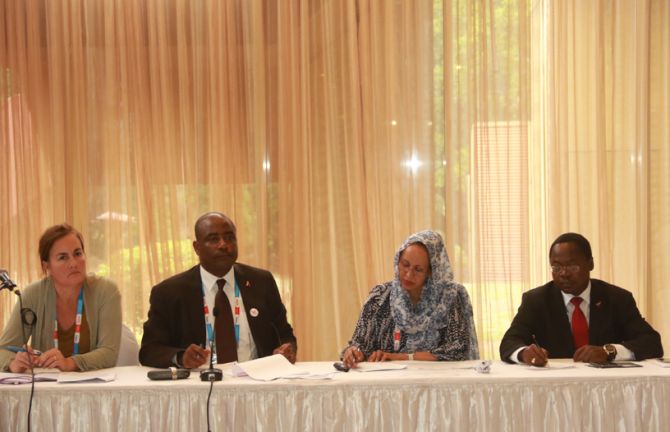

Update
AIDS in emergency, conflict and humanitarian contexts
02 December 2015
02 December 2015 02 December 2015Emergencies and conflicts around the world are causing a dramatic growth in the number of refugees, asylum seekers and displaced people. Climate change and population growth also force people to migrate, thus adding to the numbers of people on the move.
In 2013, 314 million people were affected by emergencies, of which 67 million people were displaced by natural disasters and conflicts. Of these, 1.6 million were people living with HIV. Migration and displacement are major issues affecting people’s health, including reducing their access to HIV prevention, treatment, care and support services.
In order to assess the implications of such human displacements, UNAIDS organized an event at the 18th International Conference on AIDS and STIs in Africa, which is being held in Harare, Zimbabwe. The event provided an opportunity for key stakeholders to share experiences and best practices in order to ensure that people affected by humanitarian emergencies can continue to access life-saving HIV services.
Increased vulnerability to HIV because of sexual violence, sexual coercion and other human rights violations in humanitarian emergencies, conflict and post-conflict settings was also discussed at the event.
Quotes
“Around the world, 1.6 million people living with HIV have been displaced by natural disasters and conflict. Unless we deal appropriately with people in humanitarian emergencies, we are definitely not going to achieve the three zeroes. HIV must be integrated into national disaster preparedness and response plans.”
“Djibouti has initiated programming to help refugees, but we cannot do it alone. We would welcome the development and implementation of a regional plan with technical support for joint action and implementation so that we can work under a harmonized approach with other countries.”
“In areas prone to conflict, we need to be prepared in advance. Antiretroviral medicines, commodities, task-shifting plans and the involvement of communities must all be part of contingency planning. Preparation must also include extra long-term supplies of medicines and we have to be ready.”
“When Ebola hit Liberia, the entire health system was brought to a standstill. The impact was not only on the health system but on all aspects of the country as a whole. What we really need is a rapid response and availability of resources. Secondly, we need strong community engagement. When the health system broke down, we turned to the community.”



